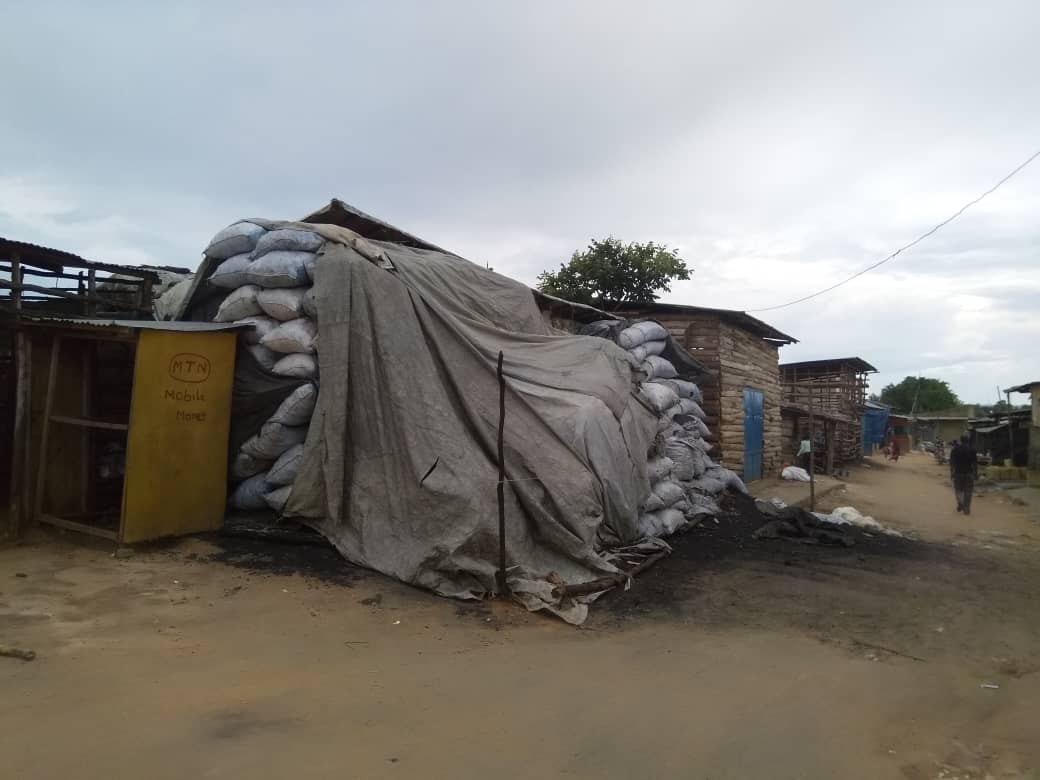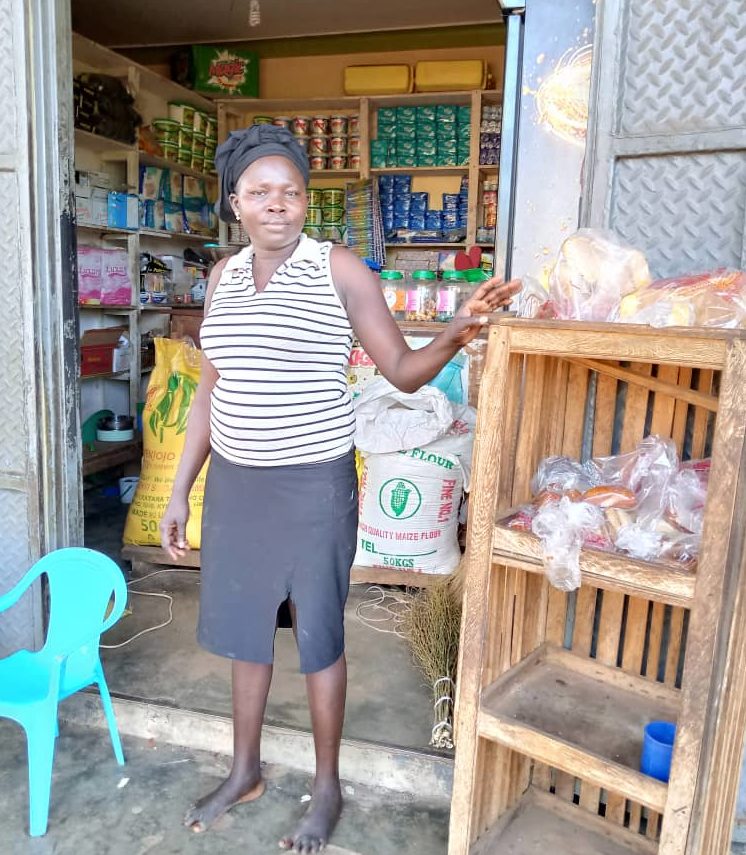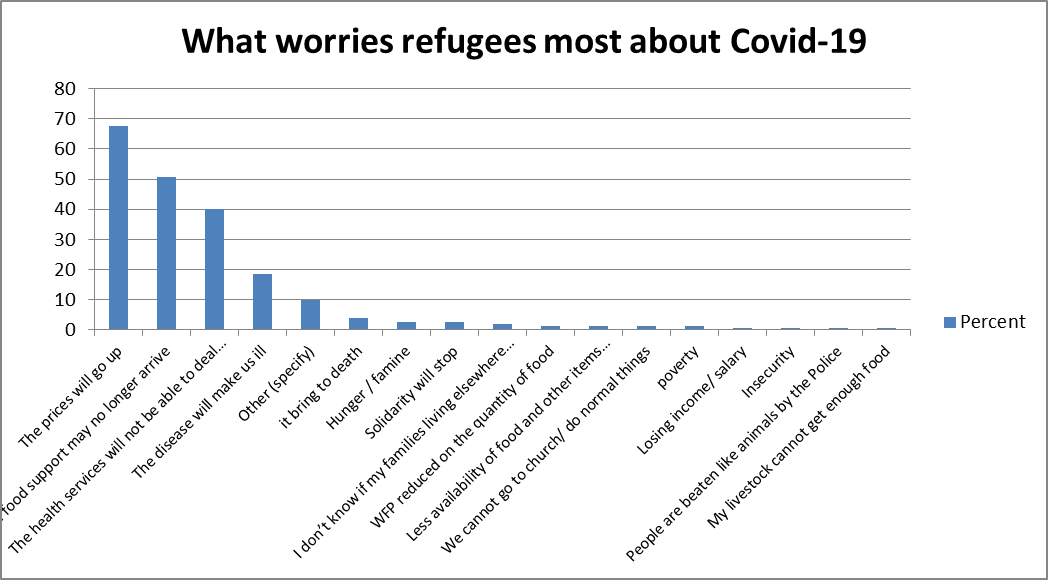As mentioned in previous blogs, in the financial diaries with refugees in Uganda we implemented some COVID-19-related questions just before and just after the lockdown on 30th March was imposed.
The largest worries were that ‘The prices will go up’ (68%), ‘The WFP food support may no longer arrive’ (51%), and ‘the health services will not be able to deal with the disease’ (40%).
The fourth worry was ‘The disease will make us ill’ which was mentioned by only 18 percent of the respondents. These answers may demonstrate that refugees are in normal circumstances already struggling to survive and they are actually more worried about the lockdown measures and what they will do to their normal ability to survive. Catching the disease is at this stage only a secondary concern.

Several refugees felt that the answer categories we gave them did not sufficiently describe their worries. Several selected “other” and specified that their worry was ‘death’ (six people used that exact formulation) and another four respondents specified their worry as ‘hunger’ or ‘famine’.
In general, there was considerable worry about the arrival of WFP food as well as the fact that WFP had announced it will reduce the food distribution by 30 percent. Where the refugees used to receive 31,000 UGX (8.22 USD) equivalent in food per person per month, this will be 21,700 UGX (5.76USD) per person from April onwards. WFP had to take that measure because donor funding had been declining for the 4.5 million refugees in the Horn of Africa. It is most unfortunate that this now coincides with the severe economic impact of Covid-19 and the lock-down.
Some comments by our field researchers:
“This respondent standing in front of the shop next to the bread shelf told me that bread supply is irregular since the lockdown. She said that she opens the shop for a few hours these days; because police kick the door when she closes it halfway.”
“Yes, even at Nakivale some businessmen and women close all day and sit in front of the shop but the time a customer reaches, they enter with him like a visitor and sell. One of them told me “We cannot survive if we don’t do so. This is called the new system and in case you get someone in need, please tell him that we are using the new system here”. Keep it up!”
This blog is written using data from the RISE project, funded by Opportunity International, with consulting services from PHB.
PHB collaborates with international development agencies, banks, regulators, and other impact makers around the world to assess, implement and scale digital interventions. We leverage the expertise of our team to support the design of digital finance ecosystems that can strengthen the resilience of communities in need. To learn more about PHB activities, publications and training, visit www.phbdevelopment.com




